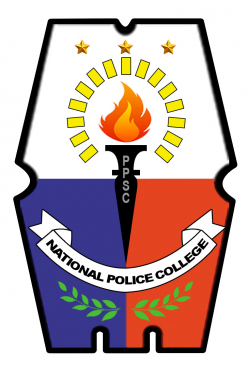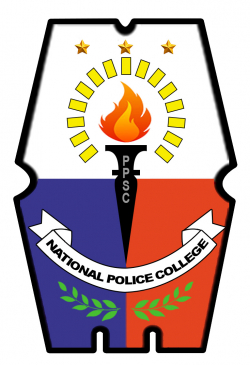EXTENT OF IMPLEMENTATION AND LEVEL OF EFFECTIVENESS OF THE PHILIPPINE NATIONAL POLICE – COMMUNITY MOBILIZATION PROGRAM (PNP-CMP) AS ISO COMPONENT IN SELECTED MUNICIPALITIES OF QUIRINO PROVINCE

Type
Thesis
Authors
PLTCOL ALAGAO, RANDY D ( PLTCOL BALANO, RUFINA B PLTCOL PASICOLAN, WALTER A )
Category
PSOSEC
[ Browse Items ]
Publication Year
2023
Tags
Abstract
ABSTRACT
Title: Extent of Implementation and Level of Effectiveness of the Philippine National Police – Community Mobilization Program (PNP-CMP) as ISO Component in Selected Municipalities of Quirino Province.
The PNP has long since been crafting policies and programs that are proactive and has implemented successful programs. This program has enabled authorities to investigate and improve its interaction with communities and various stakeholders. The Community Mobilization Program operates on the standards of empowerment & collaboration with the community to intensify its thrust on Anti-Insurgency, Terrorism, Illegal Drugs and other criminalistics activities. This study delves into forwarding and enhanced framework of CMP as a component of ISO. This study served as template that anchors leaders in crafting sound decisions for the promotion of peace and helps in strengthening partnerships with various stakeholders while championing the campaign of the program.
This study assessed the PNP-CMP extent of implementation and the level of effectiveness of its implementation in terms of: Attainment of Objectives; Strategies Used for Implementation; and Instructional Materials/Learning Resources Utilization. It also evaluated the attitude toward Empowerment and Mobilization Activities and Implementers/Bridge Builders. This study was conducted in Quirino province and only two (2) municipalities covered. A total of 378 respondents were taken, 239 from the community and 139 PNP personnel. Simple random sampling for the civilian was done while Convenience sampling for the PNP personnel. Descriptive Co-relational research method was employed, or a mixed method was used, hence, data from descriptive statistics were reinforced with test hypothesis results. In obtaining data, survey questionnaires were distributed while in the presentation, analysis and interpretation of gathered data, frequency and percentage distribution, weighted mean and co-relation were used.
A very positive attitude on the Empowerment and Mobilization Activities & Implementers/Bridge Builders of the PNP-CMP surfaced. However, up-scale on livelihood materials/learning activities is needed and an inclusion of all faith/religious sect is encouraged. CMP was fully implemented per its extent of implementation based on three components. A very high results in the area of shared responsibility, but there needs reinforcement on spiritual upliftment activities. A very effective implementation also on Instructional Materials/Learning Resources Utilization which was a best practice. There was a very effective implementation of CMP of three areas, however, a minor attention be placed on the Barangay Immersion Program (BIP). More peace advocates and committed individuals for a strong base of benefactors and the need to develop a multicultural appraisal survey to serve as feedback mechanism and a synchronous mechanization on feedbacking/reporting to authorities be established. Moreover, attitude of respondents influences the extent of implementation of the PNP-CMP in terms of its three components. Thus, attitude is posited to be an indicator or a determining factor on the success of the CMP.
Title: Extent of Implementation and Level of Effectiveness of the Philippine National Police – Community Mobilization Program (PNP-CMP) as ISO Component in Selected Municipalities of Quirino Province.
The PNP has long since been crafting policies and programs that are proactive and has implemented successful programs. This program has enabled authorities to investigate and improve its interaction with communities and various stakeholders. The Community Mobilization Program operates on the standards of empowerment & collaboration with the community to intensify its thrust on Anti-Insurgency, Terrorism, Illegal Drugs and other criminalistics activities. This study delves into forwarding and enhanced framework of CMP as a component of ISO. This study served as template that anchors leaders in crafting sound decisions for the promotion of peace and helps in strengthening partnerships with various stakeholders while championing the campaign of the program.
This study assessed the PNP-CMP extent of implementation and the level of effectiveness of its implementation in terms of: Attainment of Objectives; Strategies Used for Implementation; and Instructional Materials/Learning Resources Utilization. It also evaluated the attitude toward Empowerment and Mobilization Activities and Implementers/Bridge Builders. This study was conducted in Quirino province and only two (2) municipalities covered. A total of 378 respondents were taken, 239 from the community and 139 PNP personnel. Simple random sampling for the civilian was done while Convenience sampling for the PNP personnel. Descriptive Co-relational research method was employed, or a mixed method was used, hence, data from descriptive statistics were reinforced with test hypothesis results. In obtaining data, survey questionnaires were distributed while in the presentation, analysis and interpretation of gathered data, frequency and percentage distribution, weighted mean and co-relation were used.
A very positive attitude on the Empowerment and Mobilization Activities & Implementers/Bridge Builders of the PNP-CMP surfaced. However, up-scale on livelihood materials/learning activities is needed and an inclusion of all faith/religious sect is encouraged. CMP was fully implemented per its extent of implementation based on three components. A very high results in the area of shared responsibility, but there needs reinforcement on spiritual upliftment activities. A very effective implementation also on Instructional Materials/Learning Resources Utilization which was a best practice. There was a very effective implementation of CMP of three areas, however, a minor attention be placed on the Barangay Immersion Program (BIP). More peace advocates and committed individuals for a strong base of benefactors and the need to develop a multicultural appraisal survey to serve as feedback mechanism and a synchronous mechanization on feedbacking/reporting to authorities be established. Moreover, attitude of respondents influences the extent of implementation of the PNP-CMP in terms of its three components. Thus, attitude is posited to be an indicator or a determining factor on the success of the CMP.
Number of Copies
1
| Library | Accession No | Call No | Copy No | Edition | Location | Availability |
|---|---|---|---|---|---|---|
| NPC Library | 676822 | 1 | Yes |



